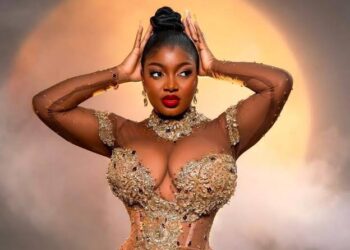Relationship coach Solomon Buchi has weighed in on the growing allegations of assault involving rapper Jay Z, calling out what he describes as selective outrage and double standards in public reactions to such issues.
The allegations against Jay Z came to light in conjunction with those against his fellow rapper Sean “Diddy” Combs, who has faced numerous accusations of sexual assault. A woman, identified in court papers as Jane Doe, claimed that both men raped her at an after-party following the 2000 MTV Video Music Awards in New York City. Jay Z has denied the allegations, proclaiming his innocence.
Buchi, however, questioned the inconsistency in the public’s reactions to these cases. He said that people who were quick to judge Diddy over what he had been accused of doing should afford Jay Z the same treatment. According to him, there is a disturbing disposition to excuse or trivialize allegations when they involve fan-favorite celebrities.

Drawing parallels, Buchi referred to the criticism Nicki Minaj faced after her husband’s legal issues and wondered why Beyoncé was not receiving the same flak; after all, Jay Z is her husband. She said this is a reflection of the culture of selective morality in which people choose whom to hold to account, based on their personal biases and celebrity status.
He further lambasted “stan culture,” which he says perpetuates this bias. Buchi referred to the blind loyalty some fans have for their favorite celebrities as “man worship,” saying it upends fairness and accountability. He said no one should be above being scrutinized just because of fame or influence.
Buchi’s remarks have ignited debates online, with many agreeing that celebrity status often shields individuals from public backlash, while others argue that more evidence is needed before passing judgment. His comments have also raised broader questions about how society addresses misconduct allegations in the entertainment industry, particularly when those involved are highly influential figures.
As an observer, I agree with Buchi’s stance on the importance of consistency in addressing allegations. While accusations are not proof of guilt, the entertainment industry often showcases a clear imbalance in public reactions. Fans tend to view their favorite celebrities as infallible, leading to dismissive attitudes toward serious issues. This culture not only undermines accountability but also creates a toxic environment where justice is influenced by public opinion rather than facts.
Allegations of misconduct should be treated seriously, regardless of who is involved. It is essential to allow investigations to run their course without bias or interference. At the same time, fans and the media must recognize the importance of holding all public figures to the same standard of scrutiny and respect for due process.
With the new allegations still coming in, Buchi added to it a layer of accountability as it were, for the continuity and consistency in such issues. Whether these allegations against Jay Z and Diddy prove to be true or not, this begs the question regarding double standards in the way people have spoken about the current situations.

















